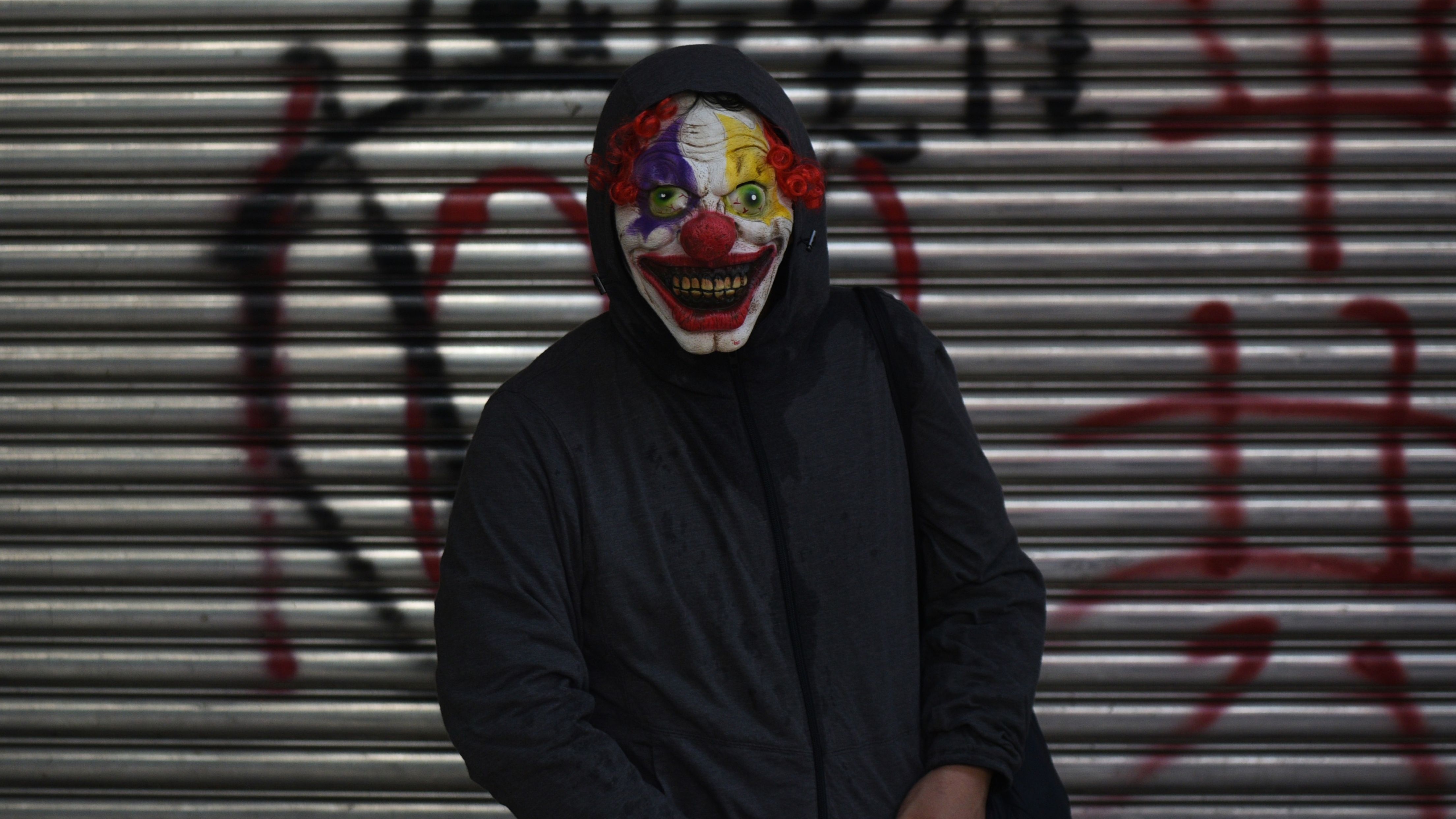Hong Kong to ban protesters from wearing masks
Colonial-era emergency powers would give executive sweeping powers to restrict communication and movement

A free daily email with the biggest news stories of the day – and the best features from TheWeek.com
You are now subscribed
Your newsletter sign-up was successful
Hong Kong’s embattled government is set to invoke colonial-era emergency power to prohibit protesters from wearing masks, as part of a broader crackdown on communications and movement.
According to the South China Morning Post, unnamed sources said that the government would invoke emergency laws that allow it to quickly ban face masks in protests as early as today.
Demonstrations, which started in June over plans to introduce an extradition bill that would have allowed Beijing to try dissidents and critics on the mainland, has spiralled into a full-blown crisis for Hong Kong’s Beijing-backed administration, with demonstrators now demanding the resignation of chief executive Carrie Lam and free and fair elections.
The Week
Escape your echo chamber. Get the facts behind the news, plus analysis from multiple perspectives.

Sign up for The Week's Free Newsletters
From our morning news briefing to a weekly Good News Newsletter, get the best of The Week delivered directly to your inbox.
From our morning news briefing to a weekly Good News Newsletter, get the best of The Week delivered directly to your inbox.
The stand-off between pro-democracy demonstrators and authorities turned violent this week after a police officer shot a protester in the chest with a live round.
Further protests are planned for this weekend, and if Lam invokes the Emergency Regulations Ordinance, which was introduced in 1922 by the British but has not be used for 50 years, “it will grant her sweeping powers, including restrictions on communication and movement” says The Times.
It would also include a ban on wearing face masks as public gatherings. NPR reports protesters “regularly wear a range of face masks in Hong Kong, from Guy Fawkes masks to thin surgical-style coverings and respirator-equipped face masks — which have the dual benefit of combating tear gas fired by police and obscuring the demonstrators' identities”.
Whether the law can be enforced remains to be seen. “There are many questions about how this ban would affect the protests” says the BBC’s Martin Yip. “It is also unclear how the overstretched police would carry it out.”
A free daily email with the biggest news stories of the day – and the best features from TheWeek.com
The Times says the ban “is certain to enrage protesters, especially frontline demonstrators, who do not want their families or employers to know about their role in the movement, which has polarised Hong Kong society”.
The Civil Human Rights Front, which has organised a few peaceful “mega-marches" over the last four months, has argued the police should, in fact, be the first to be banned from wearing masks, which would mean officers could be held accountable for any abuse of power.
-
 The environmental cost of GLP-1s
The environmental cost of GLP-1sThe explainer Producing the drugs is a dirty process
-
 Greenland’s capital becomes ground zero for the country’s diplomatic straits
Greenland’s capital becomes ground zero for the country’s diplomatic straitsIN THE SPOTLIGHT A flurry of new consular activity in Nuuk shows how important Greenland has become to Europeans’ anxiety about American imperialism
-
 ‘This is something that happens all too often’
‘This is something that happens all too often’Instant Opinion Opinion, comment and editorials of the day
-
 Epstein files topple law CEO, roil UK government
Epstein files topple law CEO, roil UK governmentSpeed Read Peter Mandelson, Britain’s former ambassador to the US, is caught up in the scandal
-
 Iran and US prepare to meet after skirmishes
Iran and US prepare to meet after skirmishesSpeed Read The incident comes amid heightened tensions in the Middle East
-
 Israel retrieves final hostage’s body from Gaza
Israel retrieves final hostage’s body from GazaSpeed Read The 24-year-old police officer was killed during the initial Hamas attack
-
 China’s Xi targets top general in growing purge
China’s Xi targets top general in growing purgeSpeed Read Zhang Youxia is being investigated over ‘grave violations’ of the law
-
 Panama and Canada are negotiating over a crucial copper mine
Panama and Canada are negotiating over a crucial copper mineIn the Spotlight Panama is set to make a final decision on the mine this summer
-
 Why Greenland’s natural resources are nearly impossible to mine
Why Greenland’s natural resources are nearly impossible to mineThe Explainer The country’s natural landscape makes the task extremely difficult
-
 Iran cuts internet as protests escalate
Iran cuts internet as protests escalateSpeed Reada Government buildings across the country have been set on fire
-
 US nabs ‘shadow’ tanker claimed by Russia
US nabs ‘shadow’ tanker claimed by RussiaSpeed Read The ship was one of two vessels seized by the US military